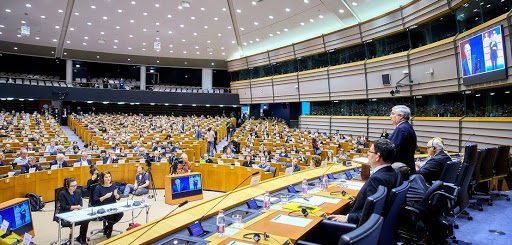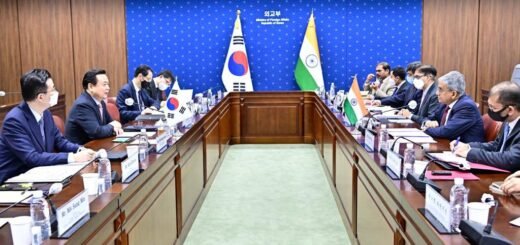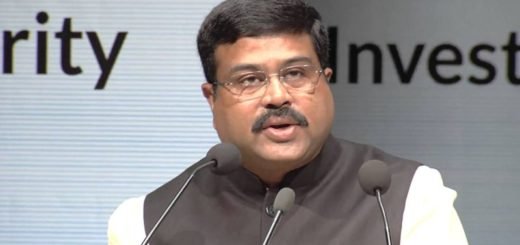June 2021: An important month for Diplomacy – EAM Dr. S. Jaishankar visits Kuwait and Kenya

June marked an important month for diplomacy as External Affairs Minister; Dr. S Jaishankar visited Kuwait and Kenya bilaterally. The results of these short visits were worthwhile and aim to strengthen the hitherto cordial relationships Indian maintains with the respective countries. Both countries enjoy a special relationship with India because of the large Indian diaspora and long-standing bilateral relations.
EAM’s visit to Kuwait
Dr. S. Jaishankar visited Kuwait from 9th to 11th June 2021 at the invitation of H.E. Sheikh (Dr.) Ahmed Nasser Al-Mohammad Al-Sabah, Foreign Minister & Minister of State for Cabinet Affairs of the State of Kuwait. This visit marks Jaishankar’s first visit to the oil-rich Gulf nation in the capacity of the EAM of India, and its primary motive was to explore steps to further deepen India’s ties with Kuwait. This visit comes three months after the establishment of a Joint Ministerial Commission, which took place when Kuwaiti Foreign Minister Sheikh Ahmed Nasser Al-Mohammad Al-Sabah visited India in March 2021.
The Foreign Minister, during this fruitful visit, held meetings with government officials, met Indian envoys of seven gulf countries, and virtually addressed the vibrant Indian community in Kuwait. The EAM, in his meeting with the Indian Ambassadors posted in Gulf countries, advised them to focus more on the welfare of the Indian community and facilitate the return of Indians stuck outside Kuwait amid the pandemic. In his address to the Indian Community in Kuwait, Jaishankar expressed his wish to soon see the resumption of flights to Kuwait as COVID cases dip in India after the second wave, and exactly a week later, Kuwait allowed vaccinated expats to return from 1st of August onwards. The meeting clearly brought some positive changes in the strict measures Kuwait had put up regarding the entry of Indian expats, and put a lot of NRIs in both Kuwait and India at ease, for they will finally be able to resume work and meet their loved ones.
India-Kuwait Relationship
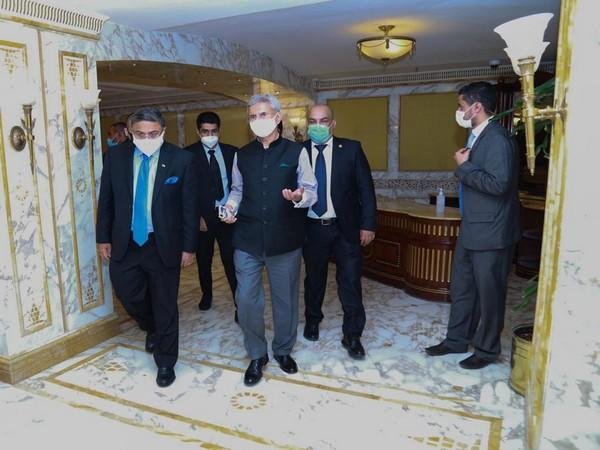
This year marks the 60th anniversary of the establishment of diplomatic relations between the two countries, which are characterized as friendly, with people-to-people connect. India is one of the largest trading partners of Kuwait, and the latter is a major oil supplier for India. India’s trade history with Kuwait is a centuries-old tradition, and until as recent as 60 years ago, Kuwait used Indian currency as its legal tender. Currently, the two countries have a bilateral trade of $8.76 billion (2018-19), and trade majorly in oil and petroleum from Kuwait, and iron & steel products, machinery, and food items from India. Indian companies have offices in Kuwait, and several agreements have been signed between the two nations in areas of science and technology.
Diplomatic relations were laid down in June 1962 with the appointment of Yacoub Abdulaziz al-Rasheed as the first Kuwaiti Ambassador to India, and the latter was the first country to recognize Kuwaiti independence, thereby legitimizing it in the international arena. Currently, there are about 1 million Indians in Kuwait, mostly blue-collar workers, although, the employment of Indians in white-collar jobs has also increased significantly in the past few years.
Though India and Kuwait had seen some strain in their relationship in the early 1990s, the EAM at the time, Madhavsinh Solanki pulled off a ‘diplomatic triumph’ and his visit to the small Gulf country helped restore normalcy in the India-Kuwait relationship.
In recent times, the two countries have shown solidarity in battling the pandemic. Last year, India sent out a rapid response team to deal with Kuwait’s COVID situation. Similarly, in May, when India was hit by the deadly second wave, Kuwait sent 500 metric tones of oxygen to India, and lit up its iconic Kuwait tower with the Indian flag along with a message in Hindi saying– “Kuwait aapke saath hai” – translating to “Kuwait is with you.”
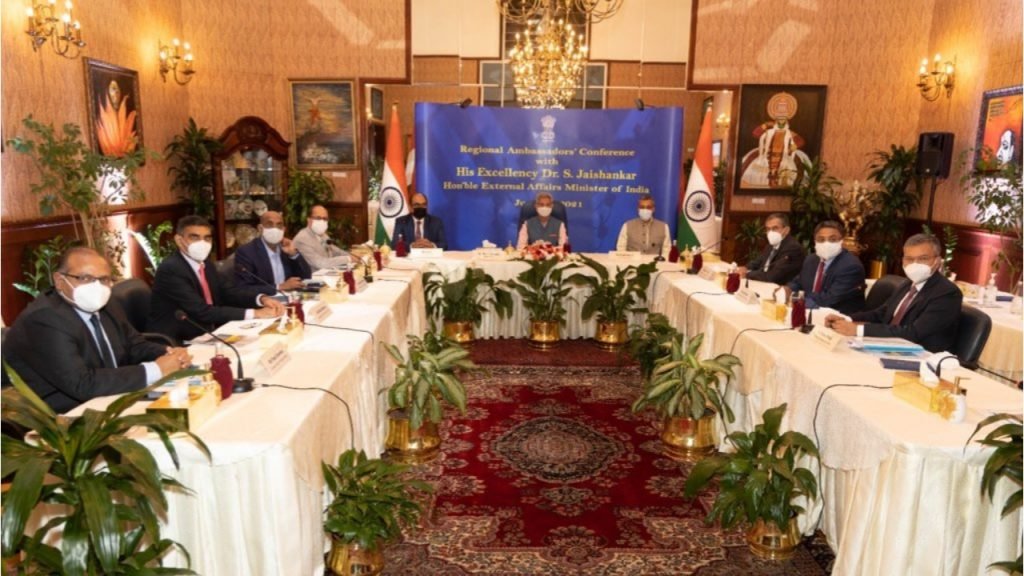
EAM’s visit to Kenya
Jaishankar, at the invitation of his Kenyan counterpart, the Cabinet Secretary for Foreign Affairs – Ambassador Raychelle Omamo, SC, EGH, paid an official visit to Kenya from 12th to 14th June 2021. During his 3 day visit to the major East African country, the EAM, deliberated on the impact of the COVID-19 situation and called for joint efforts and economic collaboration to combat the disease and its aftermath. Under the Kenya – India Joint Commission Framework, both ministers positively noted the mutual desire to expand bilateral cooperation, and take forward the relationship through structured and systematic engagements
The Indian Foreign Minister took into account the Big Four Agendas (Manufacturing, Affordable Housing, Universal Health, and Food Security), of the Kenyan Government and assured that India’s further developments in their partnership will be made taking into consideration the abovementioned goals. The two also agreed to explore further opportunities in the private and government sectors, and have the vision to increase bilateral trade relations in the future. Kenya, being India’s maritime neighbor recognized the importance of ensuring security in the Indian Ocean region, especially in the Indo-Pacific and the Horn of Africa. The EAM along with his Kenyan counterpart chaired the 3rd meeting of the India-Kenya Joint Commission, and also met other dignitaries of the Kenyan Government to take forward the warm India-Kenya relationship. Dr. Jaishankar inaugurated the refurbished Mahatma Gandhi Memorial Library at the University of Nairobi and addressed the gathering present there.
Jaishankar took the opportunity to thank all those involved in renovating a space that will benefit thousands of Kenyan students for years to come and called the project a small example of South-South cooperation. EAM, in his address, regarding the economic and social implications of the COVID-19 pandemic said that “There is no doubt that the world today is much more interlinked and much more inter-dependent. But it should not be that globalization, apply only to resources and markets while production centers remain concentrated in the hands of a few. The COVID-19 pandemic has brought home the dangers of relying on limited geographies. When supply chains were disrupted and demand outstripped supply, the more vulnerable will inevitably get short-changed. Africa cannot afford to see that continue.” He called for a pressing need for “decentralized globalization”. Highlighting that both countries; India and Kenya, are non-permanent members of the UNSC, Jaishankar also pointed out that decisions made by the international community would only be truly ‘global’ when Africa’s voice is heard adequately. The visit concluded with the ‘India-Kenya Joint Statement on the Visit of the EAM to Kenya’ and highlighted important points that were discussed during the visit.
India-Kenya Relationship
The two countries have maintained a warm and cordial relationship, and their historical and commercial ties date back to several centuries. Kenya has a large demographic of Persons of Indian origin (approximately 80,000 in 2021). The two countries have a bilateral trade of $2.3 billion (2016-17), and India was Kenya’s largest trade partner in 2015-16. Several Indian banks and corporates are also present in the East African country. In the education sector, India offers more than 400 scholarships to Kenyan students under the Indian Technical and Economic Cooperation Programme and continued to do so virtually, even during the pandemic.



